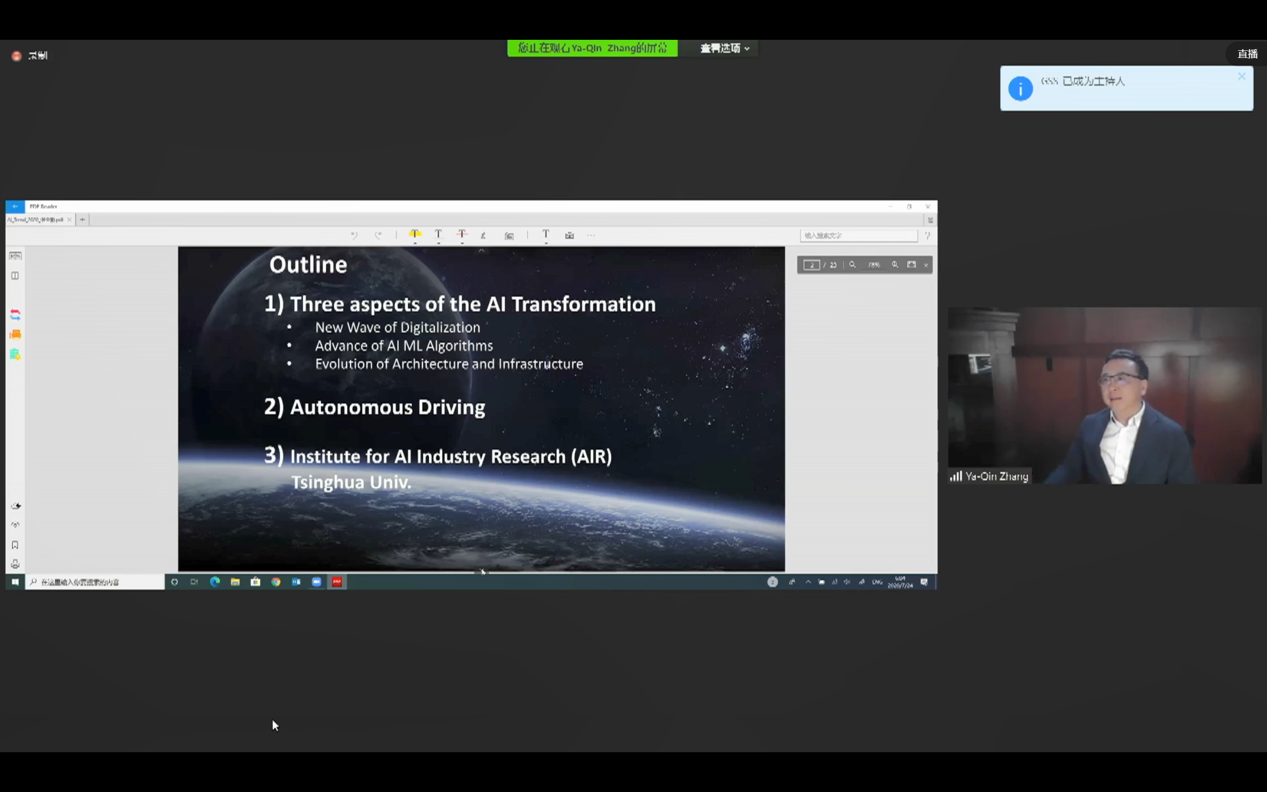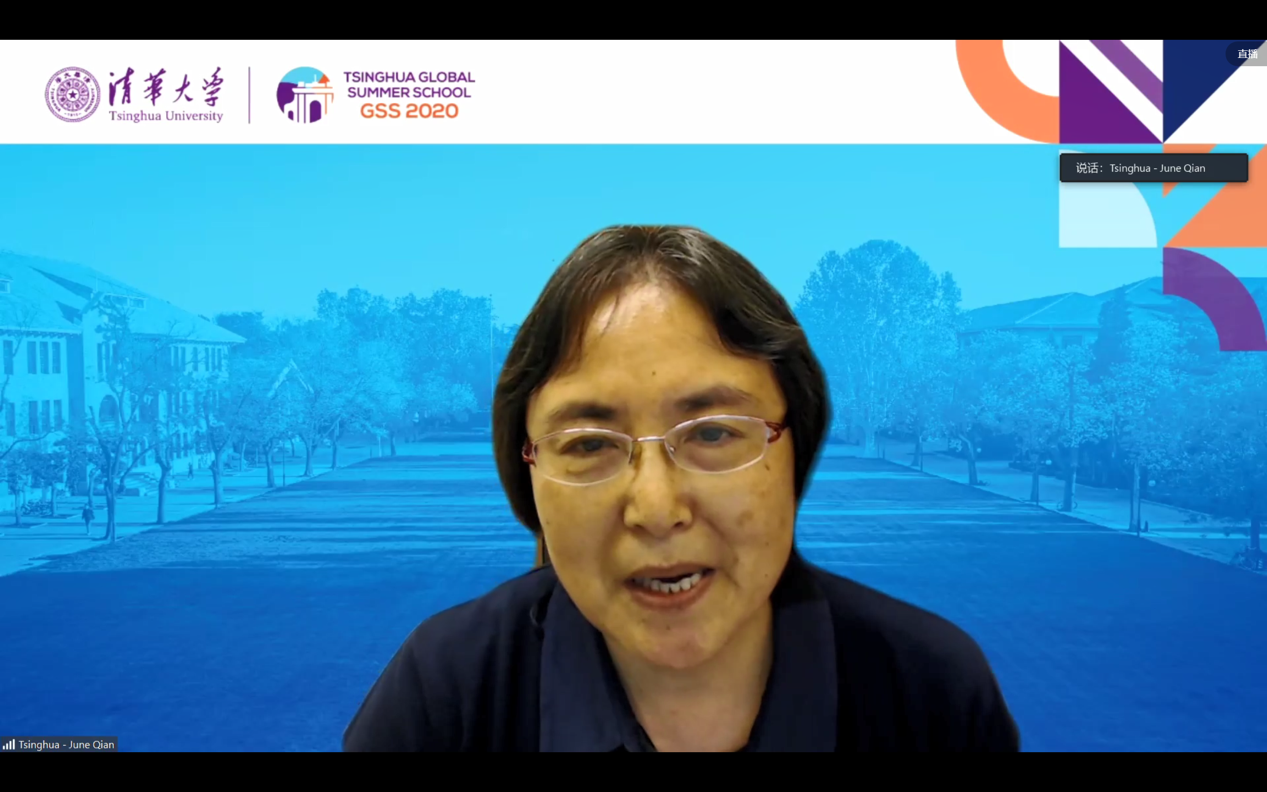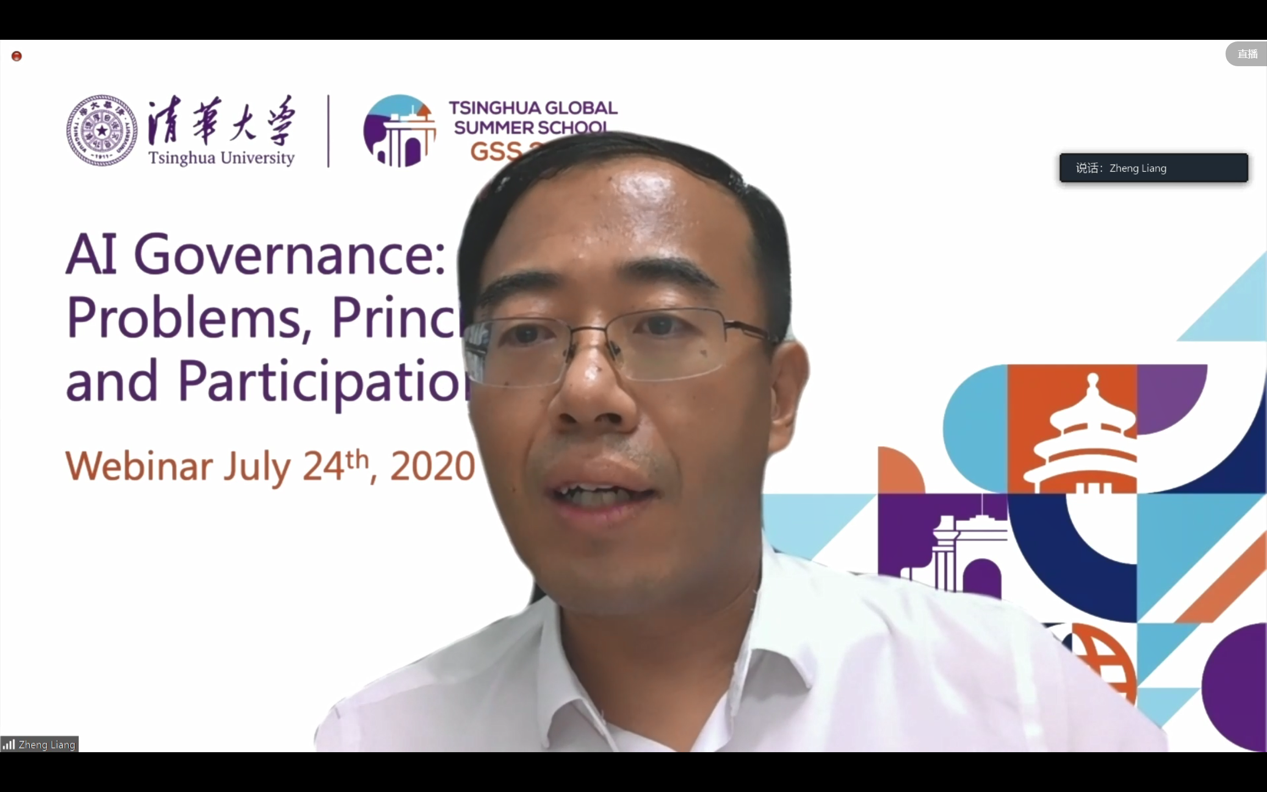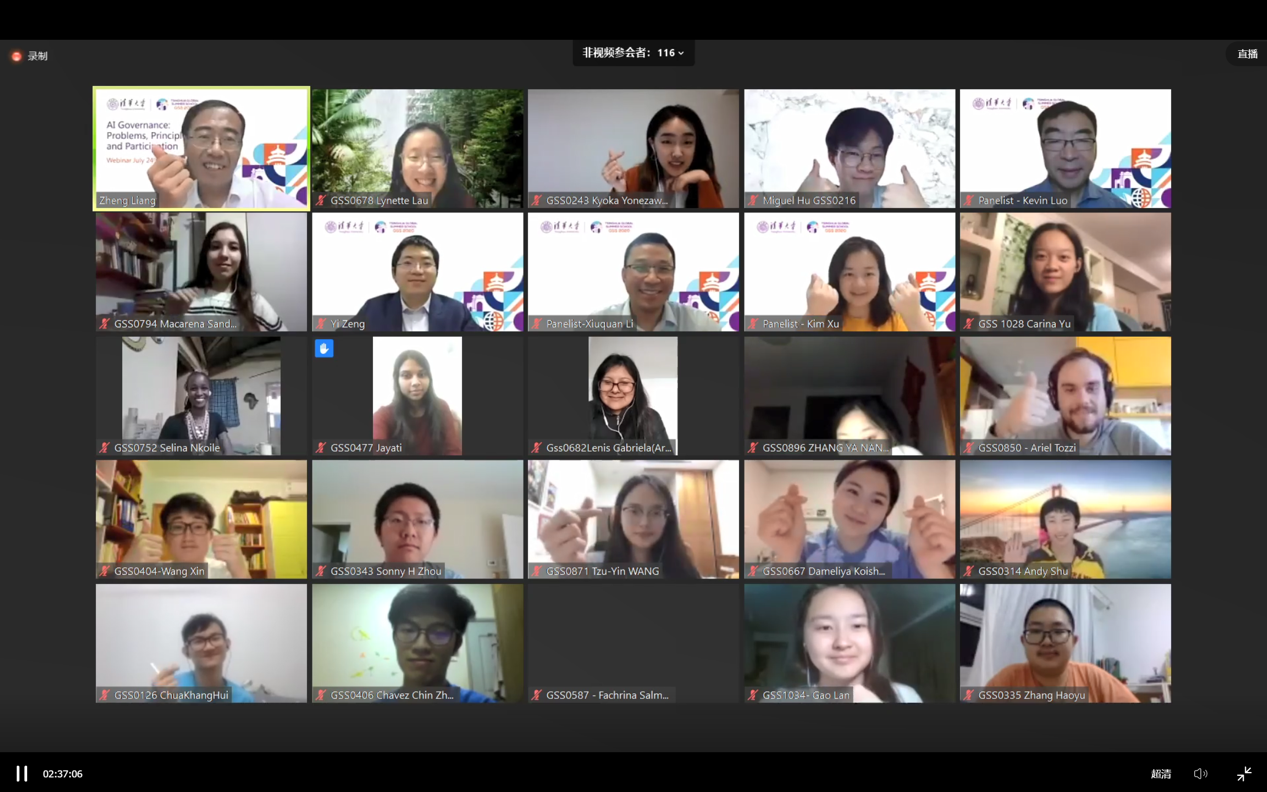On July 24, day 5 of the Tsinghua University Global Summer School 2020 (GSS 2020), entitled Artificial Intelligence Application and Governance, was underway. It was jointly organized by Schwarzman College, the Institute for AI Industry Research, the Institute of AI International Governance, and the Department of Computer Science and Technology of Tsinghua University. The sessions consisted of virtual enterprise visits, workshops, keynote speeches, and webinars to help participating students explore how AI affects policy formulation, global security, and international relations.
Dr. Zhang Ya-Qin, Dean of the Institute for AI Industry Research of Tsinghua University, former President of Baidu Inc., and former Corporate Vice President of Microsoft, gave a keynote speech entitled New Wave of AI Transformation. Starting from three different perspectives of the AI industry transformation, Dr. Zhang Ya-Qin analyzed the combination of information, material and biology in digitalization 3.0, and elaborated on the recent breakthroughs in machine learning algorithms and the evolution of computer architecture and infrastructure. He believed that autonomous driving is the future trend and the transformation of the automotive industry will mainly concern four aspects: electrification, autonomy, connectivity and sharing. Autonomous driving will integrate many key technologies and, after five stages of optimization and upgrading, it will eventually move from partial automatic to fully automatic, and from human control to automatic system operation, creating huge social and economic value.

In addition, Dr. Zhang Ya-Qin introduced the management ethos and research direction of the Institute for AI Industry Research (AIR) of Tsinghua University. AIR aims to seize the fourth industrial revolution, and create an innovative research and development platform with key breakthrough points: autonomous driving, AI + Internet of Things, and brain-like intelligence. In the interactive session, when asked the question “whether infrastructure security upgrades can keep up with the development speed of AI”, Dr. Zhang Ya-Qin responded that many technologies, for instance, differential privacy protection based on data distortion, have emerged to improve the security of infrastructure such as data and algorithms. Nevertheless, while developing AI industry, scientists should always focus on ethical issues including privacy and data security, and conduct research and promote the development of the industry in a more responsible manner.

At 8pm Beijing time, Qian Xiaojun, Professor at the Tsinghua University School of Economics and Management and Associate Dean of Schwarzman College, gave a lecture entitled Aiming to a Life of Impact - My Understanding about Leadership, and shared his own experience with the students, encouraging them to follow their aspirations and become leaders of the future. The session was chaired by Professor David Q. Pan, Executive Dean and Professor at Schwarzman College.

The day was concluded with a webinar themed AI Governance: Problems, Principles and Participation. The event was presided over by Professor Liang Zheng, Vice President of the Institute for AI International Governance of Tsinghua University. Also invited were Ms. Xu Yuncheng, Chief Operating Officer of Beijing Kuangshi Technology Co., Ltd., Dr. Luo Lifan, General Manager of Microsoft Asia R&D Group Legal Affairs, Dr. Zeng Yi, Professor at the Institute of Automation of Chinese Academy of Sciences, and Dr. Li Xiuquan, Deputy Director of the New Generation Artificial Intelligence Development Research Center of the Ministry of Science and Technology of China. Together, they discussed frontier topics such as the relationship between smart technology and society, the importance of collaboration between research organizations, the responsibilities and challenges of enterprises, and the ethics and safety surrounding AI.

In the webinar Q&A session, Xu Yuncheng responded affirmatively to the question of “whether data science can be used in broader business activities”. She mentioned that the data currently used to improve user experience and analyze market opportunities may be less than 7 percent of the total market, and many traditional industries still have great potential to transform themselves by applying AI. Regarding the question "how artificial intelligence can be used to fight the pandemic and applied in the post-pandemic era", Luo Lifan cited the chat robot launched by Microsoft during the pandemic, which can make certain diagnoses and treatment feedback to users through AI. Additionally, big data can be implemented to help ensure that people maintain social distancing. Zeng Yi added that the current medical reliability of AI needs to be improved, as it can only be used to assist in making diagnoses. Moreover, the privacy of citizens involved in this process needs to be supervised and protected by the government to ensure that technology is used ethically and responsibly.
Another issue that drew attention was the question of “whether human jobs will be replaced by AI in the future”. Li Xiuquan believed that AI will assist but not replace human jobs as it will be mainly used to solve simple, repetitive and dangerous tasks, and cooperation between humans and machines will become the mainstream. In this process, there may be some job losses, but in the long run, the birth of a new industry will bring a lot more job opportunities, and thus it is also a favorable time to upgrade the education system.
Two enterprise virtual visits were also held. Students paid virtual visits to Lenovo’s Future Center and Huawei’s ICT technology exhibition hall, where they observed their plans for a variety of smart life scenarios, and experienced the culture of innovation of leading companies in China’s IT industry.
The Tsinghua University online Global Summer School (GSS) 2020, entitled Toward a Post-Pandemic World is a 9-day journey carried out collaboratively by 17 global academic institutions, including ten different colleges and departments of Tsinghua, five overseas institutions, and two international associations for higher education initiated by Tsinghua. GSS will delve into our post-pandemic world in various disciplines - including economics, education, society, artificial intelligence, climate change, and leadership - and engage with students through lectures, group discussions, and cultural experiential events, integrating the academics with innovation and interaction. GSS strives to break through boundaries, technical limitations and identity constraints to address social issues. The summer school aspires to integrate resources and collaboration inside and outside classes, off and on campus, in China and other countries, and online and offline.
Reporter: Hu Suhan
Photos: Qiu Yinghan, Li Ruyi
Editors: Guo Lili, John Olbrich